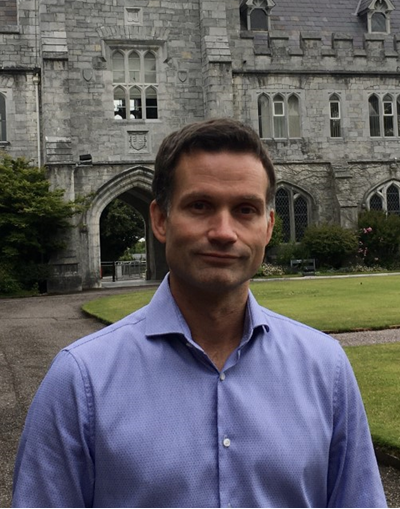Final Report, ECCO Grant for Marcus Claesson
Marcus Claesson, ECCO Grant Awardee
The gut mycobiome in Inflammatory Bowel Disease
Continuation of the project initiated by Chloe Huseyin, ECCO Grant Awardee
 Marcus Claesson © Marcus Claesson |
Background & aim of research
The conducted research had two aims:
Aim 1: To characterise the inter-/intra-individual composition of the mycobiome of patients with IBD and healthy controls utilising a variety of sample types and methodological techniques.
Aim 2: To provide a large dataset of fungal internal transcribed spacer (ITS) rRNA sequencing data to complement the bacterial 16S rRNA analysis underway in-house.
Methodology used in the research
Aim 1: All 50 stool samples that have corresponding biopsy samples have been collected from 25 patients with IBD and 25 healthy controls; DNA has been extracted and will be sequenced.
Aim 2: All samples have been collected and DNA extractions are ongoing. Briefly, we now have 12 stool samples from each of the 25 patients with Ulcerative Colitis. These will allow for comprehensive comparison of both intra- and inter-individual mycobiome variation using our state-of-the-art analysis techniques.
The methodology included both amplicon ITS and metagenomic shotgun sequencing.
As recently suggested by ECCO, the following Aim 3 was not carried out:
Aim 3: To perform an investigation into mycobiome biases and ITS-associated confounders so that the scientific and medical communities are better informed when designing future mycobiome projects.
Main findings/results of the research
The shotgun sequencing from these samples has been completed and is currently being analysed. There was a delay due to changing of staff and the downstream impact of COVID-19 on the lab and parallel unrelated projects.
The ITS analysis was completed and it was concluded that there were significant intra- and inter-individual variations in fungi composition and diversity. While Saccharomyces dominated at genus level in most samples, there was no significant correlation with relapse. We expect that the shotgun data will elucidate more granular species-level trends. In terms of methodology, an in-depth comparison showed DADA2 in combination with the UNITE ITS Classifier to be the most suitable pipeline for mycobiome analysis.


